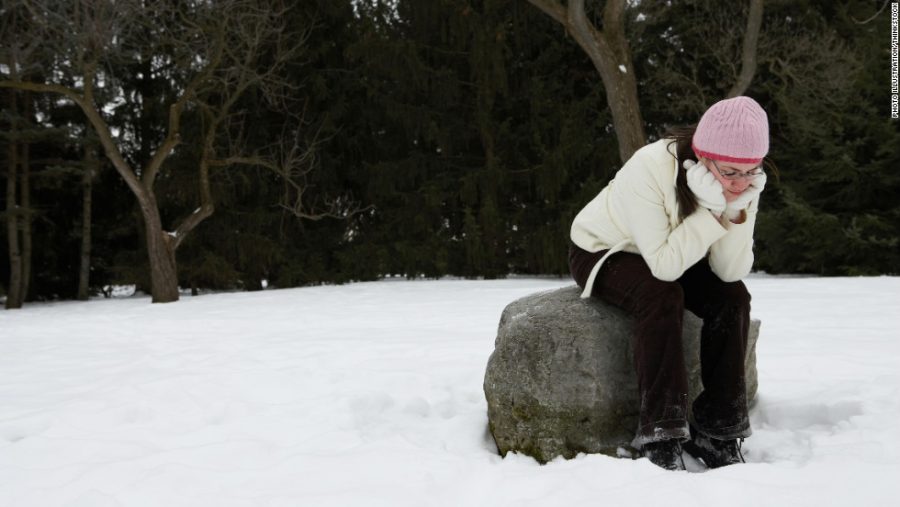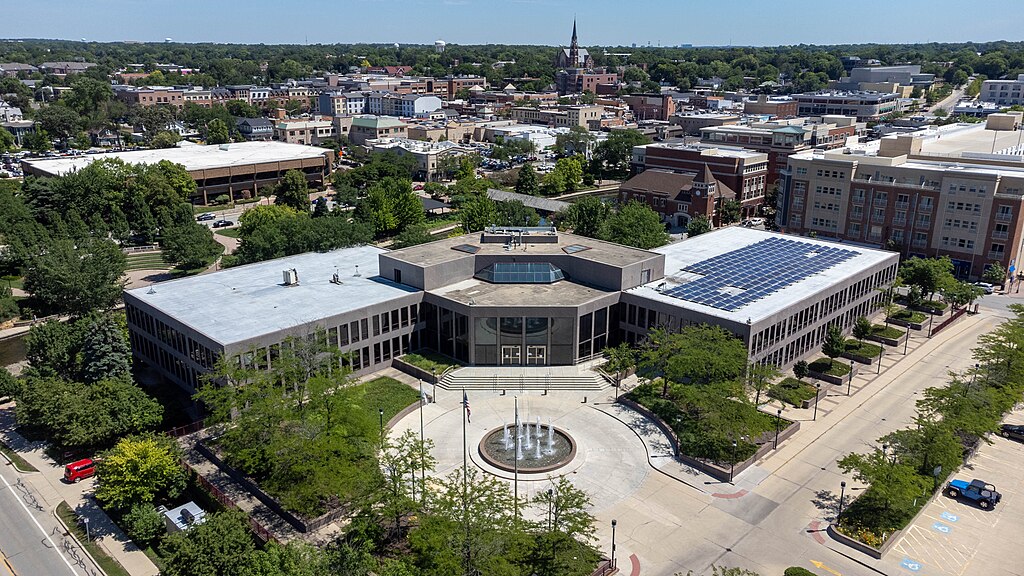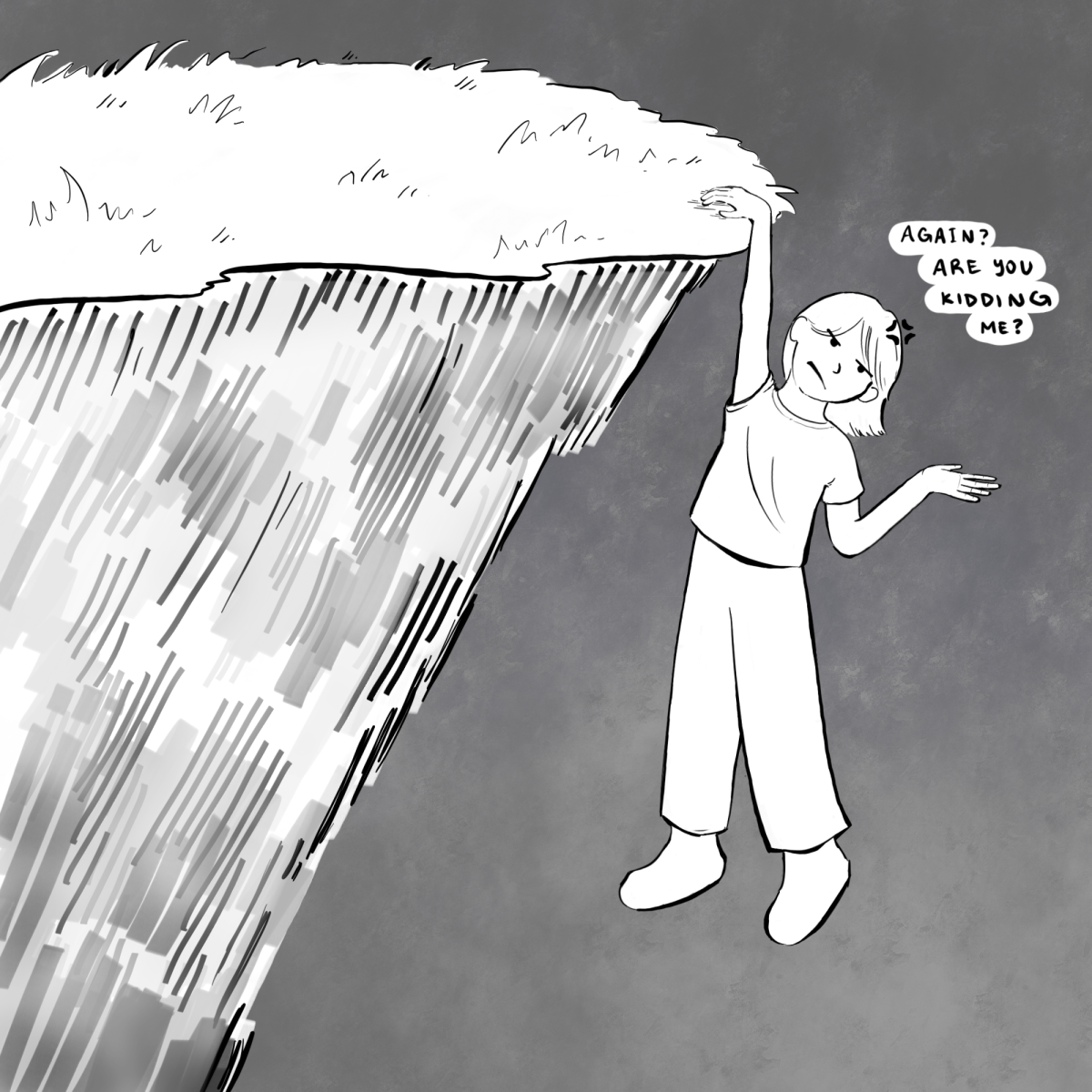Feeling SAD?
February 16, 2018
Starting June 21, each day gets shorter, and shorter and shorter, leading us to the one day, the longest, darkest night of the year: Winter Solstice.
The shorter days and longer nights are accompanied by colder temperatures and a reduced exposure to sunlight, a perfect recipe for an annual form of depression termed Seasonal Affective Disorder (SAD).
SAD is a form of depression that occurs at around the same time every year. SAD often results in a feeling of gloom and a general lack of enthusiasm toward life in general. According to the Mayo Clinic, people who experience SAD may experience anxiety, apathy, loss of appetite and mood swings.
According to Psychology Today, SAD affects approximately 10 million Americans, and it is four times more common in women than men. Many people I know experience SAD around winter. It is amazing to see what a simple factor such as the weather can do to a person. However, according to the Mayo Clinic, this depression can be treated with lots of exposure to light at the beginning of the day.
I personally do not have a favorite season, and I certainly don’t have a least favorite season. So I don’t necessarily experience SAD. However, I do associate certain words with all four seasons. Here are the first words I think of for each season:
Winter: Sicknesses, dark mornings
Spring: Blooming plants, allergies
Summer: Too hot, vacations
Fall: Colorful, more allergies
I associate each season with words that have both positive and negative connotations. There are things that I love about each season, but there are also certain aspects that I am not a fan of.
I only have one thought in mind when people around me complain about the season: there’s no point in complaining about it because we all have to face it.
We have to go to school during the majority of the winter. We’ve been doing so for the past 12 years, and over the years, I have grown to love it, despite the rise in colds. I especially love the dark winter mornings. I just love to sit in front of the heater, in an atmosphere lit only by the lights outside. It’s amazing to experience the peace and quiet of these mornings.
I used to hate everything about winter, complaining about having to put on an entire new layer of clothing just to walk the 10-foot distance from my front door to the car. I also felt forced to stay inside the house, caged and trapped.
Each time the weather was undergoing drastic changes, I was greeted by sneezes, coughs and colds when I stepped into the school building. I know that I used to complain about all my sick peers I was surrounded by, but over the years, I have learned to look past even that.
As I got older, the amount of homework and tasks I had to complete after school increased, diverting my attention from the weather and my complaints about it to my long to-do list in front of me.
Spring is when two major events take place: the reappearance of plant life and major allergies. Inside the school building, I see multiple people not feeling well due to their allergies from the changing season. Spring is also the season where the life and color in the world that was taken out by winter is restored. There is an explosion of green foliage.
Summer is a very unique season when it comes to my feelings. It is the season during which we all have two and a half months off from school. This long vacation can be the source of enjoyment and the source of problems all at the same time.
During the school year, I have more tasks on my list than I have time to complete them. During the summer, it is the exact opposite. I have much more time on my hands and much less to do. For the past three summers, the only tasks on my to-do list were to complete my honors English summer assignment and a summer course. This is troubling for me, since I am the type of person who always needs a to-do list.
The arrival of fall means the return of a slightly packed schedule, also known as the start of school. Most of my peers dread this time of year, but I look forward to it.
To those experiencing Seasonal Affective Disorder, here’s a thought: distract yourself with a large to-do list so that you are occupied during the difficult season. With a long list of things to do, there is no time to even think about how the season and outside environment is affecting you.
In many ways, this cycle of seasons represents life. You like some and hate some, but in the end, you have to persist and thrive! Don’t get too bogged down by the winter, spring is just around the corner!









Angelina Lee • Apr 11, 2018 at 1:28 am
Wow–love how this was both informative and carried a personal touch. I’ll definitely be prying deeper into how I perceive the seasons. I also never really read about seasonal depression before, so this was helpful for many reasons. Even as we head into spring, this was helpful!!